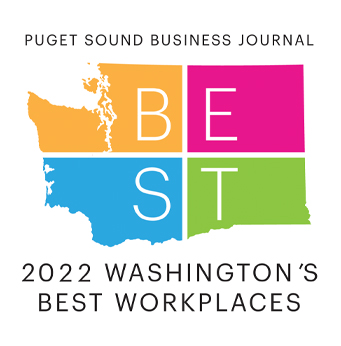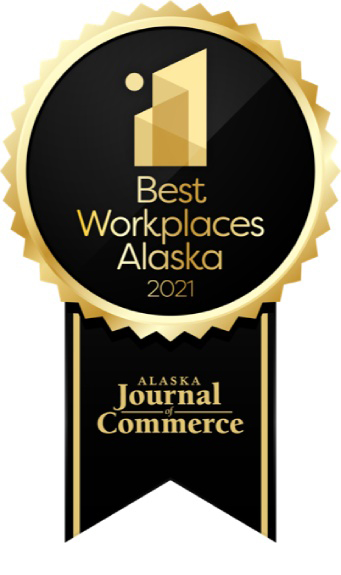COVID-19: Benefits-Related Checklist
May 22, 2020
This checklist is a summary of legislative and regulatory changes related to COVID-19 that affect employer-sponsored health and welfare benefits. It also includes some temporary actions employers and carriers have taken in response to business and coverage needs during this public health emergency.
Group Health Plan Eligibility and Coverage
COVID-19 diagnostic testing must be covered by all group health plans with no cost-sharing
- Coverage is required when the testing is advised by a healthcare provider.
- Group health plans might be able to impose cost-sharing for diagnostic testing required by employers as part of a return-to-work or preventive strategy (not advised by a healthcare provider).
- Coverage of this diagnostic testing may be provided by an HDHP without causing individuals to lose HSA-eligibility.
Telehealth coverage and increased COVID-19 treatment coverage encouraged
- Although it is not required, plans are encouraged to provide coverage for telehealth (beyond just diagnosis and treatment related to COVID-19) and COVID-19 coverage with reduced cost-sharing beyond diagnostic testing.
- The IRS has clarified that providing such telehealth and COVID-19 coverage under an HDHP will not cause an individual to lose HSA-eligibility.
-
Telehealth coverage may be provided by HDHPs without impacting HSA-eligibility through plan years beginning as late as December 2021.
Expanded HSA, health FSA and HRA coverage
- Effective January 1, 2020, and going forward indefinitely, plans are permitted to allow reimbursement for (i) over-the-counter (OTC) drugs without a prescription; and (ii) menstrual products.
FFCRA paid leave (Emergency Paid Sick Leave and Expanded FMLA)
- Employers who are required to provide paid leave in accordance with the FFCRA must continue benefit coverage (including employer contributions) exactly as it is provided to other active plan participants during the protected leave.
- Employers are permitted to claim a tax credit for wages and the cost of health care coverage (employer + employee pre-tax contribution) provided to employees on protected leave.
CARES Act
- Employers qualifying for financial assistance under the CARES Act may be able to claim loan forgiveness or tax credits for the benefit coverage provided to employees.
Health FSA carryover
- To assist plan participants who fail to submit enough claims to use all contributions during the plan year, health FSAs are permitted to adopt up to a 2½ month grace period or a carryover, but not both.
- For those plans with a carryover, the maximum carryover permitted for plan years beginning in 2020 was increased to $550 (previously $500).
Extended eligibility for furloughs and layoffs
- Many employers have chosen (and carriers/stop-loss vendors have agreed) to temporarily extend benefit eligibility to employees placed on furlough or laid off.
- Other employers have terminated coverage and offered COBRA to those who no longer meet plan eligibility requirements, but have chosen to temporarily subsidize COBRA premiums.
Special enrollment opportunities
- Many carriers, including public Exchanges, offered special enrollment opportunities to employees and family members who previously waived medical coverage.
Employer mandate considerations
- Applicable large employers (ALEs) – those with 50 or more FTEs – must follow break in service rules for employees who have a period of time with no hours of service due to furlough or layoff to avoid potential penalties under §4980H.
- The break in service rules apply for employers using either the monthly measurement method or the look-back measurement method.
- ALEs using the look-back measurement method may need to consider how this affects eligibility for benefits during a furlough or layoff and how it may impact eligibility for the next plan year.
- Adjustments to employees’ hours and pay, or adjustments to employer/employee contributions toward medical coverage, may impact the affordability of coverage and the ability to use the affordability safe harbors under §4980H(b).
Extended Time Frames
HIPAA special enrollment notification
- Group health plans that are not excepted benefits (typically group medical plans) are required to allow mid-year enrollment for employees and their family members who experience (i) a loss in coverage; (ii) acquisition of a dependent due to marriage or birth/adoption; or (iii) becoming newly eligible for a Medicaid or CHIP subsidy.
- Notice of such event must be provided to the plan within 30 days (or 60 days when related to Medicaid or CHIP coverage) in order to exercise a HIPAA special enrollment right.
- This notification period is suspended until after the National Emergency ends + 60 days.
COBRA notification, election, and payment
- Notification of qualifying events is typically required by the employer within 30 days of the qualifying event, or by the employees (or dependent) within 60 days of the qualifying event. Notification of a disability determination is also required within 60 days.
- The plan administrator is then required to provide an election notice to qualified beneficiaries (QB) within 14 days of receiving notice of a qualifying event.
- Upon triggering COBRA continuation rights, QBs must be given at least 60 days to elect COBRA continuation coverage. If COBRA coverage is elected, COBRA participants must be provided with at least 45 days from the date of electing COBRA to make the first premium payment; and thereafter, a 30-day grace period must be provided for COBRA premium payments.
- All of these notification, election, and payment deadlines are suspended until after the National Emergency ends + 60 days.
ERISA claims
- ERISA requires plans to follow various timelines for filing benefit claims, appealing adverse benefit determinations, and requesting external reviews.
- This likely includes deadlines (e.g. the end of run-out periods) for submitting claims for reimbursement under a health FSA or an HRA.
- Claims deadlines are suspended until after the National Emergency ends + 60 days.
ERISA notices
- A variety of notices are required to be provided to eligible employees and plan participants under ERISA (e.g. SPDs, SBCs, initial COBRA notice, SARs, WHCRA notice).
- Plan sponsors will not be considered non-compliant during the National Emergency + 60 days for failing to provide ERISA-required notices and disclosures within generally required time frames so long as notices are provided “as soon as administratively practicable under the circumstances.”
- Notices may be provided using alternative electronic means including email, text messages, and continuous access websites, so long as the plan sponsor reasonably believes participants have effective access to electronic means of communication.
Health FSA and DCAP reimbursement
- Health FSA and DCAPs require that eligible expenses be incurred during the plan year and that claims be submitted within a certain number of days after the end of the plan year or loss of eligibility (a “run-out period”).
- For non-calendar plan years or calendar plan years with a grace period ending in 2020, participants with an unused balance at the end of the plan year or grace period may be given through the end of 2020 to incur and submit additional claims.
- This is optional; employers are not required to allow for this extended claims period.
Form 5500 and Form M-1 filing
- For Forms 5500 or Forms M-1 due between April 1, 2020 and July 15, 2020, the deadline is delayed to July 15, 2020.
Cafeteria Plan Election Changes
Health coverage mid-year election changes
- Mid-year changes to pre-tax elections through an employer’s cafeteria plan generally cannot be changed unless the employee experiences a recognized life event or change in status under §125 rules.
- For the remainder of 2020, employers may choose (but are not required) to allow employees to make the following prospective election changes even if they are not clearly permitted under regular §125 rules:
- Elect health coverage if the employee previously waived;
- Revoke an existing election health coverage and make a new election to enroll in different health coverage sponsored by the same employer or move from single to family coverage; or
- Revoke an existing election for health coverage, provided that the employee attests in writing that the employee is enrolled, or immediately will enroll, in other health coverage not sponsored by the employer.
Health FSA and DCAP election changes
- Mid-year changes to pre-tax elections through an employer’s cafeteria plan generally cannot be changed unless the employee experiences a recognized life event or change in status under §125 rules.
- For the remainder of 2020, employers may choose (but are not required) to allow employees to make prospective election changes to begin, end, increase or decrease contributions to a health FSA or DCAP even if they are not clearly permitted under §125 rules.
The views and opinions expressed within are those of the author(s) and do not necessarily reflect the official policy or position of Parker, Smith & Feek. While every effort has been taken in compiling this information to ensure that its contents are totally accurate, neither the publisher nor the author can accept liability for any inaccuracies or changed circumstances of any information herein or for the consequences of any reliance placed upon it.



